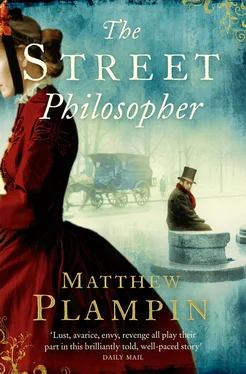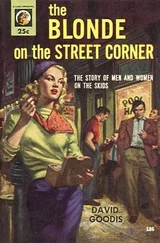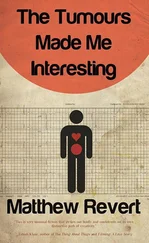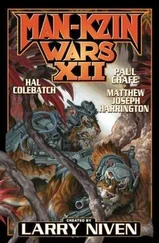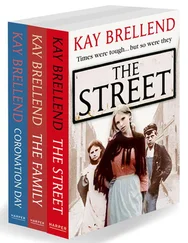The line approached a sturdy fence running across their path. Standing close to it, on the corner of a small crossroads, was a crude fingerpost. It had been whitewashed all over; even the names on the signs had been obscured.
‘Lieutenant-Colonel!’ someone shouted. ‘A word, sir!’
Boyce sighed. It was Major Maynard. Trust him to spoil the moment. ‘What is it, Mr Maynard?’ he replied impatiently, urging his mare over the fence. She cleared it effortlessly.
‘The signpost, sir! It’s been whitewashed!’ There was alarm in the Major’s voice. The soldiers marching behind Maynard, who were listening intently, all swivelled their eyes towards the white wooden fingers.
‘Well of course it has!’ snapped Boyce, wheeling around. ‘They don’t want to offer us directions to Sebastopol, do they? Honestly, man!’
Maynard glanced at the long row of attentive faces behind him, and then rushed forward, ducking through the bars of the fence and running up alongside his commander’s horse. ‘No, sir, with respect, I really don’t think that’s it,’ he said forcefully.
Boyce felt his earlier fury return. Why his superiors sought to torment him by placing this dullard in his regiment was completely beyond his capacity to understand. And his wretched voice, with those horrible twanging vowels–it was, quite unmistakably, the voice of a commoner. ‘Then what, pray, is it, Maynard?’
The line met the fence. It creaked as it went down. Soldiers flowed around the fingerpost.
‘Artillery, sir. It’s for their artillery,’ Maynard answered. ‘To indicate the limits of range.’
Boyce scoffed, and started to ride on. ‘Oh, what absolute rot! Honestly, Maynard, I sometimes think—’
The report of the cannons rolled around the valley. A dozen white smoke-jets leapt from the midst of the Russian redoubts. The black mare started to rear.
Styles froze. There was a split-second pause, and then a shrill whistle, followed by a heavy thud, and shouts from the ranks before him. These were not shouts of distress, however, but of warning; the cannon-balls were hitting the grass some fifty feet in front of the line, and then bouncing towards it. The soldiers could see the shot coming, and step smartly to one side.
Recovering himself, he watched a ball roll away, smoking, across the plain. Some among the redcoats began to yell abuse at the Heights, mocking their enemy’s marksmanship. Cracknell trotted on ahead, waving for his colleagues to follow. Styles was at his side in seconds, determined not to let the senior correspondent get ahead and thus have an edge when the time for valour arrived.
As they fell in a few yards behind the soldiers, he looked the Irishman over, and wondered for the thousandth time what the divine Madeleine Boyce could see in such an empty cad, such an arrogant, self-aggrandising buffoon. It made no sense at all; and the worst of it, the part that made him truly sick, was the certain knowledge that despite the fact that she was being pawed by this scapegrace, freely consenting to it, enjoying it even, he loved her still. He loved her more than ever, in fact, with an aching intensity that felt as if it would send him screaming across the valley, straight towards the Russian guns.
But he was also quite certain that he was worth ten Cracknells. And this battle, he thought, gritting his teeth, is my great chance to prove it to her.
A ball whipped past him, so close that a gust of hot, bitter wind blew across his face. It seemed to be travelling much faster and higher than the two-score shots that had come through the 99th so far, and prompted a fearful spasm; a couple of feet to the left, and his campaign would surely have ended right there.
To his relief, this spasm did not linger. There was, in fact, a bizarrely jocular atmosphere to the advance that made his momentary loss of self-possession seem entirely unwarranted. The soldiers continued to joke and laugh whilst their bands played on gaily. The reports of the enemy cannon were distant and grand, like rolling drums, and their shots, including the one that had come so near to him, were still spinning away harmlessly. It was easy to convince oneself that all was well, that careful plans were being skilfully executed, and would lead to swift victory.
Kitson, who had been lagging, finally caught up with them, a hand on his hat like a man struggling through a gale. He seemed to be experiencing serious disquiet; his eyes were darting around furiously, trying to look in several directions at once. Could it be that the junior correspondent, having come this far, did not have the nerve for the challenge ahead–that he had reached the limits of his endurance?
Cracknell turned to them, beaming. ‘You see?’ he shouted cheerily over the noise of the marching army. ‘What did I tell you? All quite mechanical!’
Kitson, plainly unconvinced, crouched down as low as possible whilst Cracknell did the complete opposite, pulling himself to his full height, and then stretching and craning in order to see as much as he could. Keen to align himself with the brave, Styles did the same. He caught sight of Lieutenant-Colonel Boyce, out in front atop his black horse, surveying his dodging men with distaste, yelling at his sergeants to enforce the regimental line.
Then came the sound–metal striking flesh, tearing through it in an instant, like a butcher cleaving a rack of ribs. All laughter among the soldiers stopped abruptly, as if a door had been suddenly slammed on a room full of merriment, and an astonished scream took its place.
Boyce’s voice rose above the cannon-fire, somewhere up ahead. ‘Leave the wounded for the bandsmen! Leave them where they fall, I don’t care what rank they are! Keep steady! Press the advance!’
Another shot hit the 99th. Styles saw a red spray arc briefly above the soldiers’ shakos, and a wet ball slide into the grass behind them. The band stopped playing and left the advance. Their sergeant, a flute in his hands, stared dumbfounded at the smattering of broken bodies that lay in the wake of the line. Some of the injured writhed and wailed, others lay motionless and silent. Several were clearly dead, their skulls caved in or organs horribly exposed. Close to the Courier men was a corporal, his left leg sheared off just above the knee, a creamy substance oozing from the white shard of bone, mixing with his blood. He was trying to sit up, puffing frantically.
It was happening too quickly, far too quickly. Thinking to take stock for a moment, Styles came to a halt; and found himself staring dumbly at this corporal’s wound, drawn in by the savage colours, the cruelly attenuated form, the hideous, pulsing rawness of it. His stomach cramped painfully, and sweat sprung out across his brow, but he could not look away.
A hand closed on his shoulder. It was Kitson. He was facing the sergeant, who still stood resplendent and useless in his richly embroidered bandsman’s uniform. ‘Aren’t you going to do something?’ he demanded angrily.
The sergeant started, as if shaken out of a trance. He rubbed his brow with his sleeve, and hung the flute on his belt. ‘Orders are to carry ’em back. Fer–fer transport out.’
‘Back where? Out where?’
The sergeant just shook his head. Hesitantly, the band members approached the wounded and began to drag them back towards the Allied camp. The corporal, gripped under each arm and trailing fluids, started to sob piteously, but after a few yards fell into unconsciousness.
‘Come, Styles,’ muttered Kitson. ‘We must stay focused on our task. Mr Cracknell won’t wait for us.’
Styles nodded, trying to right his stumbling spirits. Such sights were part of battle. Cracknell was up in front, just behind the army, a dirty black blemish on a row of glowing red, jotting something in his pocketbook. They were a good distance closer to the Russian cannon now, the balls cleaving the air above them with wallowing roars. As they arrived at the senior correspondent’s side, a private further down the line was struck full in the chest and flung back violently through his fellows. Immediately, an officer began shouting for his men to fill the hole and keep to their places. The voice, high and lisping, sounded familiar; Styles stole a quick glance above the multitude of shining black shakos to see Captain Wray, waving his sword at his soldiers as if threatening them with it, cursing them vehemently for their cowardice.
Читать дальше
